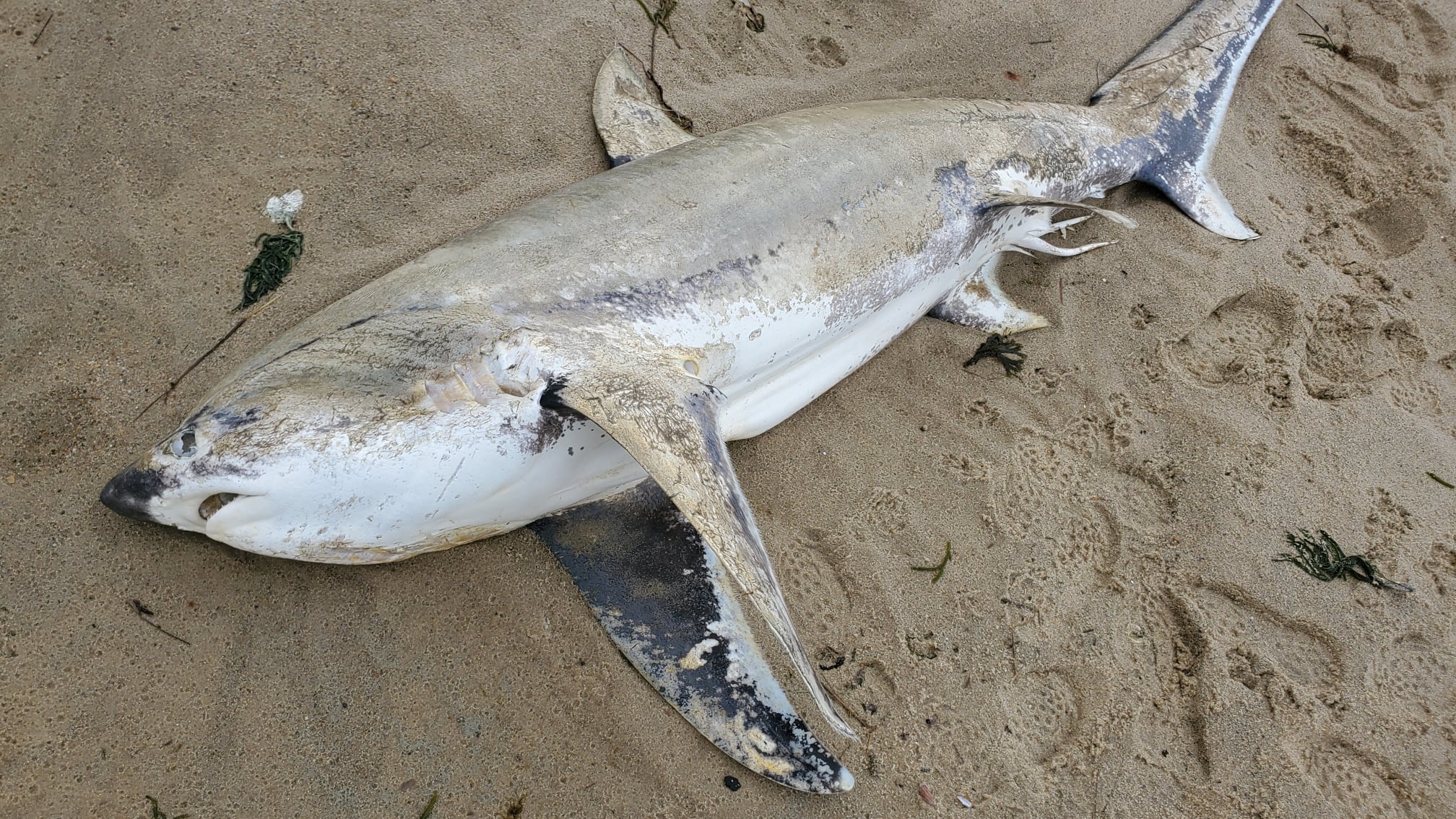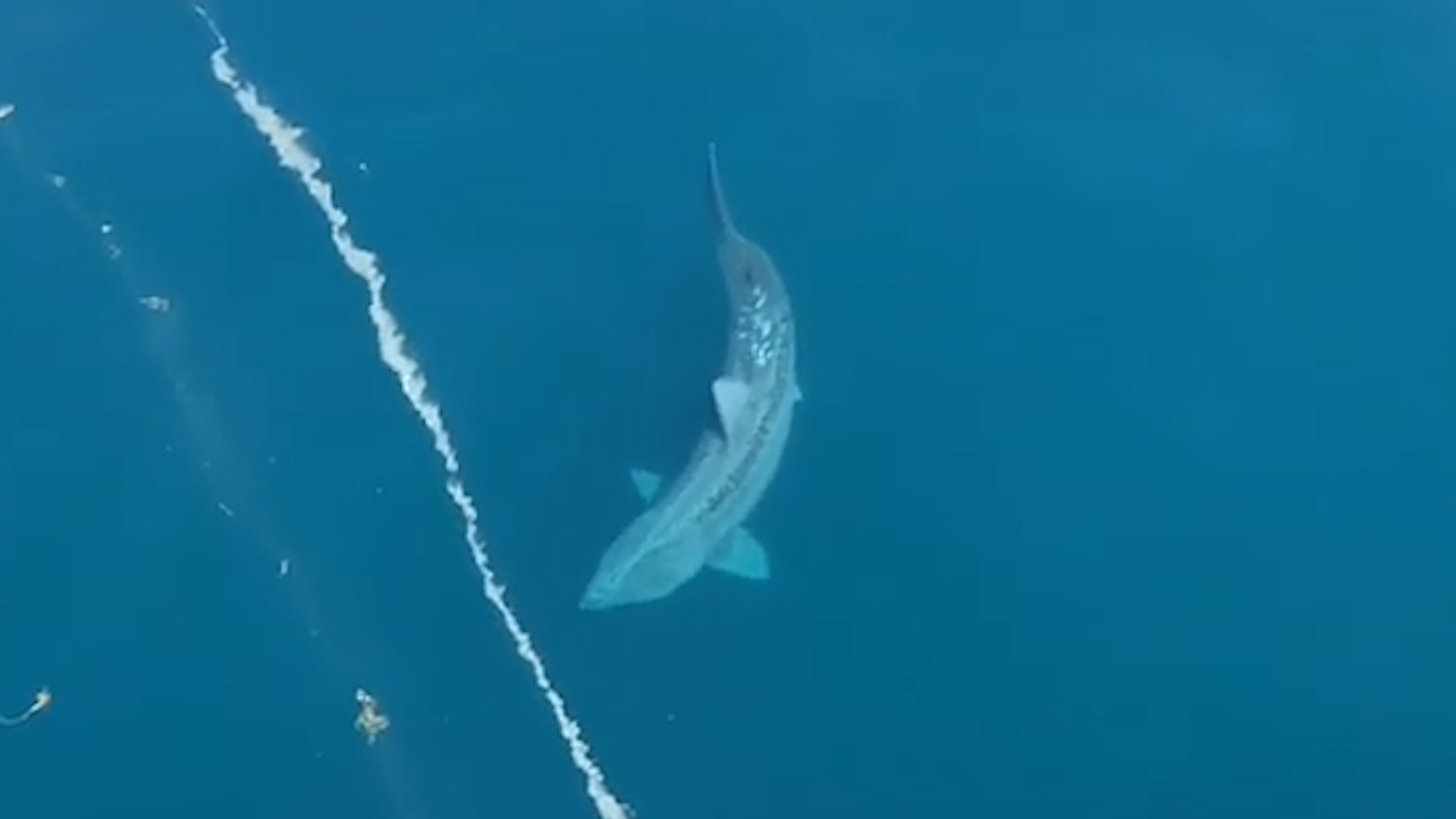Cape Cod voters, tourists and commercial fishermen are all likely to recognize sharks as an important, beneficial piece of the local marine ecosystem, but when it comes to seals, the groups have more divergent views, according to newly published data.
A survey of more than 1,800 people found significant similarities in how different groups of people think about sharks in the waters surrounding Cape Cod, predators that have long occupied a unique, sometimes mythologized place in the public consciousness.
In all three categories of Cape residents or visitors polled, respondents -- and especially tourists -- demonstrated a likelihood to see the benefits that sharks provide as greater than the risks they pose to swimmers, surfers, fishers and other humans.
"While people are frightened of sharks, and that's clear from the data, their beliefs of the ecosystem benefits of sharks and their feelings of control over whether or not they encounter sharks mute this fear," said Jennifer Jackman, a Salem State University professor and the principal investigator behind the study. "It's very clear that people, over 60% in each of the categories of stakeholders, believe they have control over whether or not they encounter sharks."
Get Boston local news, weather forecasts, lifestyle and entertainment stories to your inbox. Sign up for NBC Boston’s newsletters.
For seals, however, there was less alignment among the three groups. Voters and -- in particular -- tourists have a favorable view of the marine mammals, often believing them to be a sign of a healthy ecosystem and enjoyable to observe.
More on sharks
Fishermen, meanwhile, were more likely to view seals negatively or to blame them for reducing fish populations and attracting sharks -- which naturally hunt seals -- to the area.
About 45% of Cape voters said they take pride in local seal populations, as did 64% of tourists surveyed, but among commercial fishermen, that rate was only a bit more than 10%.
"The seals are really smart, and they have learned that if they follow the fishing boats out to the fishing grounds, they can get a free meal," said Melissa Sanderson, chief operating officer of the Cape Cod Commercial Fishermen's Alliance.
Between June 2021 and September 2021, researchers conducted surveys with representative samples of 547 Cape Cod voters, 564 commercial fishers and 699 tourists. The project, funded by Woods Hole Sea Grant, involved a team from Salem State University, UMass Boston, the Center for Coastal Studies, the Tufts University Center for Animals and Public Policy, the Cape Cod Commercial Fishermen's Alliance and the Atlantic White Shark Conservancy.
Researchers published their survey results Monday at a hybrid in-person and virtual event, where speakers said they do not have specific state-level policy recommendations but hope that shining a light on Cape Cod perceptions will help leaders at local and regional levels craft conservation and wildlife management plans.
Experts have said the seal population around Cape Cod is rebounding after a period of strain. The number of sharks is less clear, and Atlantic White Shark Conservancy Education Director Marianne Long said Monday that a study is underway to investigate that question.
In the 1880s, Massachusetts and Maine offered bounties to encourage hunting seals amid concerns that they were damaging fish stocks, which experts said Monday contributed to decades of hunting that severely depleted seal populations.
Northwest Atlantic Seal Research Consortium Co-founder Andrea "Dre" Bogomolni said seals and sharks were once "far more abundant on the Cape" but "almost disappeared because of human activity."
"After decades of conservation efforts including the adoption of the Marine Mammal Protection Act and federal protection on white sharks, we are beginning to see the signs of return," Bogomolni said. "While encouraging, this new reality, this rewilding, also means very few in living memory have actually seen what a healthy, productive northwest Atlantic looks like. Now, with seal and shark populations rebounding, we on Cape Cod and elsewhere are discovering what it means to share a coastline with these large predators."
The survey found that commercial fishermen on Cape Cod still often believe seals contribute to declining fish stocks and limit recovery of overharvested fish populations. But when it comes to ways to rein in the animals, all three groups showed a preference for non-lethal management as opposed to culling seals, researchers determined.
Sanderson said the National Oceanic and Atmospheric Administration, or NOAA, plans to hold workshops this spring with commercial fishermen to develop additional non-lethal methods for keeping seals out of fishing gear.
"This comes at a good time, because as we're developing these deterrents and doing research on what works and what doesn't work, knowing that the rest of the population -- the voters, the public, the tourists -- are supportive of those non-lethal management measures is really important to seeing that succeed," Sanderson said



